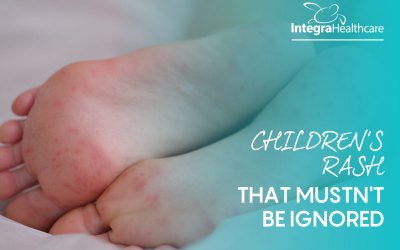Your teen’s school years can be hard. They go to bed late to finish homework, sports and chores. Then, they must wake up early for school. This is a recipe for a thrown-off sleep schedule and results in children becoming sluggish and low on energy, at best.
Experts have said that from puberty up until the age of 22 that 9 hours of sleep is required to be mentally, physically, and cognitively healthy.
But this is not happening for most children. In fact, 92% of teens live with chronic sleep deprivation. This may be shocking to many parents who believe that their children are healthy, but today’s culture of overscheduling and electronics take a toll on a teen’s body, which is flooded with hormones that can already disturb sleep. To make matters worse, many adults and parents alike are ‘too busy’ to sleep. This is why paediatricians have declared that insufficient sleep is a public health issue. Luckily, there are some ways in which sleep schedules could get back on track. Below we review the risks of sleep deprivation, symptoms and solutions.
Symptoms and Risks of inadequate Sleep
Experts say that teens need more sleep than younger children, around 9 hours of sleep each night, to meet the demands of a their growing and developing bodies. Missing even a few hours of sleep each night can have a major impact.
- Poor academic performance
- Higer risk for depression
- Higher risk for obesity
- Prone to illness and infections
- Concentration difficulties
- Shortened attention span
- Memory impairment.
- Poor decision making
- Lack of enthusiasm
- Moodiness
- Aggression
- Have a hard time waking up in the morning
- Falling asleep during classes
Tips to Promote Sleep
Screen Time
Have your teens turn off all their electronic devices an hour before they go to bed. The reason being is that screens emit blue light. This blue light then sends signals to the brain, suppressing melatonin production and keeping kids from feeling tired. So, though they are not tired at the moment when they eventually do fall asleep, they wake up exhausted.
Snacking
While having a quick late-night snack is tempting, it can do more harm than good when keeping a proper sleep schedule. Eating late postpones sleep and can increase hunger, contributing to the risk of obesity, acid reflux, blood pressure, and blood sugar issues.
Commitment
While it is easier to set a sleep schedule for a younger child, that can be much harder for a teen. Unless they recognise that more sleep is and will make them feel better, they aren’t likely to want to change their sleeping habits. This is where parents come in; show your teen that a good night’s sleep is essential and talk it out and reason with them.
Setting a Good Example
Believe it or not, no matter the age, your children still follow the example they see from their parents. Work with your child on implanting healthy sleeping habits, and you lead by example. Even helping your child earlier with their homework so you can ensure that they have their work done and eat on time, settle into their rooms at a better time, and get the rest they need.
Consistency
Do you know how they say consistency is key? Well, the same applies to sleeping habits. This is crucial, especially if healthy sleeping habits are trying to be built. Child and adolescent psychiatrist Alison Maker, MD, says it is vital for a teen to go to bed as close as possible to the same time every night and get as close to 8 hours of sleep as possible. But it is also essential to stay in that same sleep routine and weekends and holidays.
These are a few examples of ensuring we don’t have a cranky teenager after the holidays. A happy teenager means an even happier parent!
Advanced Help
Find more ways to improve your teen’s sleep schedule. If you find these tips aren’t as effective with your teen or are noticing your teen’s sleep schedule deteriorating, this could be a sign of something more serious such as a sleeping disorder.
ntegra’s highly experienced paediatric team offer a range of services including treatment for children and teens with sleeping disorders. For more information View Paediatrics & Children’s Care Services.



